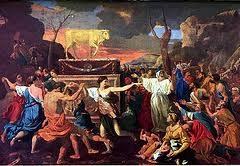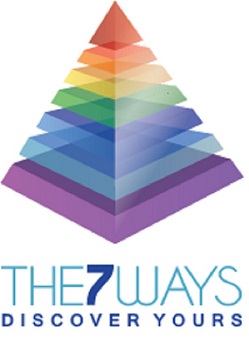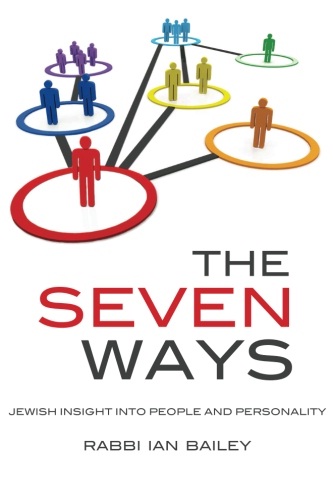Life is Easier When you Replace Dad with Mom
5 lines, Then Longer Version Below
PDF PrintMe Replacing Dad with Mom When Moshe appears to not descend Mt. Sinai at the appointed time, Israel decides to forsake proper faith in G-d. The nation turns to Aharon and pressures him to help make an idol. This parallels a dynamic to which we are susceptible, which is an unconscious preference to forsake father archetypes in favor of mother archetypes.
Israel felt animosity toward Moshe, as the embodiment of the paternal netzach, because this middah/quality is one that pushes for  truth, even if it means telling people that they are incorrect in their behavior or have crossed the line morally.
truth, even if it means telling people that they are incorrect in their behavior or have crossed the line morally.
Aharon’s hod is caring and loving, and we believe that people like Aharon will be permissive with us, no matter what our behavior.
When society embraces an unhealthy conception of hod, it becomes overly-permissive and overly-indulgent, and can over-elevate women and qualities that are associated with that gender.We must realize that both netzach– and hod-type qualities are important for us to pursue, and that it is healthy and proper to attach ourselves to people who encourage us to improve our behavior (e.g., rabbis, mentors, friends).
Happy Post-Purim!
Ian
——————————————————————————————–
The full version:
When Moshe appears to not descend Mt. Sinai at the appointed time, Israel decides to forsake proper faith in G-d. The nation turns to Aharon and pressures him to help make an idol. This infamous incident parallels a psychological dynamic that occurs frequently, and is especially prevalent in our generation. We often turn away from those who force us to change our behavior to find people who have a more pleasant demeanor and will hopefully be complaint when we wish to bend or break the rules.
Moshe is the embodiment of the archetype of netzach, which is a wise, paternal figure or object. Aharon, with his hod concept, is an
encouraging, maternal, and permissive archetype. Israel recognizes that Moshe is an important leader and mourns him upon his  death; however, due to the fact that Moshe pushed Israel to correct its behavior when it goes against the Torah, the nation feels a certain amount of animosity towards the great leader. In contrast, Aharon is described as caring and loving, trying to make peace at all times.
death; however, due to the fact that Moshe pushed Israel to correct its behavior when it goes against the Torah, the nation feels a certain amount of animosity towards the great leader. In contrast, Aharon is described as caring and loving, trying to make peace at all times.
The nation forsakes Moshe, when he seems permanently absent, and turns to Aharon to assist them in making a replacement deity. This would have never happened with Moshe; the strong-minded leader would have sternly rejected them right away. Aharon is different. Using techniques based on compromise, he tries to delay them. This can be seen as temporarily ‘helping’ them with their plan, which is the natural inclination of someone with the attribute of hod.
Idea for Us
Similar to Freud’s famous Oedipus complex, in which someone unconsciously desires to kill his father and intimately connect with his mother, I think there is an unconscious desire to want to get rid of father figures and elevate mother figures. This is to push away people and symbols that embody netzach and seek out those archetypal objects that embody hod.
This is not only a matter of seeking out that which is more convenient and comfortable (i.e., less “rebuke”, more care); the over-elevation of the hod archetype permits, from the newly elevated (misunderstood) maternal authority figure, an entire culture of over-permissiveness. It becomes the dominant attitude, changing the proper balance of the different concepts/middot in the society.
 This imbalance of middot is very prevalent in our country and other Western societies. Our country was founded by yesod (dynamic, big-visioned, permissive (in certain areas)) leaders who wanted religious and political freedom and proper democracy for all (i.e., not absolute monarchy/malchut, and the control it requires). However, this freedom does not put into place large amounts of boundaries, as a malchut-based government would; there are not enough gevurah/boundaries in our type of society to counterbalance the yesod.
This imbalance of middot is very prevalent in our country and other Western societies. Our country was founded by yesod (dynamic, big-visioned, permissive (in certain areas)) leaders who wanted religious and political freedom and proper democracy for all (i.e., not absolute monarchy/malchut, and the control it requires). However, this freedom does not put into place large amounts of boundaries, as a malchut-based government would; there are not enough gevurah/boundaries in our type of society to counterbalance the yesod.
We do not wish to be told what to do (e.g., over-eating, limits of Internet usage, TV watching, etc.) no matter how harmful the behavior is; this leaves us to police ourselves in many areas—but what if we don’t? The middah of yesod made a safe place for the misuse of hod to grow prevalent.
Unfortunately, as a byproduct of all of this, we have grown suspicious of strong father-figures. There are no doubt men and women abusing positions of authority and executing controlling, paternal behavior for selfish purposes. However, it is important for us to find healthy father-figures for our own psychological growth, and to encourage us to improve our behavior. That’s right – I said it. We should spend time with wise people and rabbis to compel us to improve our behavior.
It Happened to Me!
I once complained to one of my two rebbes about certain difficult interactions that I was having with a particular individual. He gave me empathy and told me to meet with him during a break from the school in which we studied. He wanted to give me his full attention, so he had to reschedule the meeting twice. When I finally sat down with him, he said that he thought that I needed to act differently, not just the other person! I was totally taken by surprise! I rescheduled twice and traveled half way across Jerusalem to be told to change my behavior? …but he was absolutely right. I was wrong for my approach to the interactions and needed to change, not only the other person.
Present-day Jewish Law & Rabbis
Judaism has in its law system the ability to render more lenient decisions, should the need arise. These lenient decisions are necessary  and important in many instances, such as a case with a pressing need, great loss of money, or to be utilized in the setting of dealing with unaffiliated or still-growing Jews who need permissibilities in order to keep the law. However, there needs to be a line that can never be crossed.
and important in many instances, such as a case with a pressing need, great loss of money, or to be utilized in the setting of dealing with unaffiliated or still-growing Jews who need permissibilities in order to keep the law. However, there needs to be a line that can never be crossed.
Unfortunately, this line is being crossed in our day and age; the rendering of decisions that are too lenient or institutionalizing the lenient decision as the perpetual standard is the now norm for some groups. They are incorrect. In a Seven Ways lens, we can conceptualize this issue as the fact that we can use hod to make things easier, but netzach must tell us, however hard it is to hear, that there is a line that must never be crossed and a standard that is the true baseline. Yes, some people are wrong. It may hurt to hear it, and may seem against the pervading society, but it is true.
Looking around and the personalities of Orthodox rabbis across the country, the previous generation is made up, classically, of mostly netzach-types and the current generation of young rabbis is filled far more with hod personalities (it is clearly now the vast majority in at least one segment of Orthodoxy). This reflects the shift in synagogues and Orthodox Jewry. Less people want to hear that they should modify their behavior and more people want to be accommodated and to receive positive regard.
While all people, consciously or unconsciously, want a community religious leader to care for and pay attention to them, there tends to be a different emphasis in the hod’s work, when compared to a netzach. Both Moshe and Aharon, netzachs and hods can be caring  and wise and practice to be experts in both realms; however, hods tend to offer more in the way of warmth and interpersonal relationships, and are willing to turn a blind eye and not make comments, when need be.
and wise and practice to be experts in both realms; however, hods tend to offer more in the way of warmth and interpersonal relationships, and are willing to turn a blind eye and not make comments, when need be.
After personal interviews and assessing this change in clergy, it has become clear that people would rather their rabbi to be more overtly caring and to be entertaining the congregation at events. At various times for better and worse, synagogues are acting more as venues for entertaining events and sympathy, than modification of behavior and Torah study. These events and change in synagogue life are not negative, per se; most synagogues have returnees to Judaism; many people who have studied torah all their life benefit from lively, outreach-style events; we do well with both prayer and socializing, with study and charity events.
I mention this information solely because it is important and extremely useful to recognize when different areas are emphasized more or emphasized less. (There of course there are tremendous exceptions to these descriptions of synagogues, and different emphases are better to different people, etc.).
[spread the word! if you enjoy the content, recommend The Seven Ways to a friend!]
Finally
Our psychology has it that we need proper fathers and father figures as role models. We need them to go over our decisions with us to make sure that they are logical. After a certain age, we don’t need to be told what to do, but it is important to review our life and behavior with the wise people in our lives. In addition,I believe that everyone needs a netzach-type rabbi, regardless of what the personalities are of the other rabbis and role models in their lives.
A happy post-purim! Ian